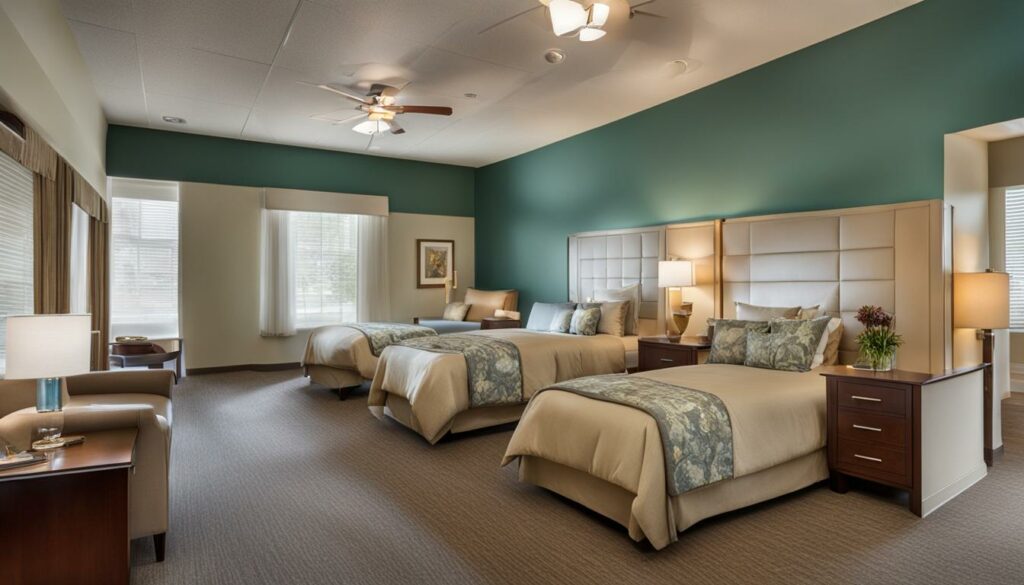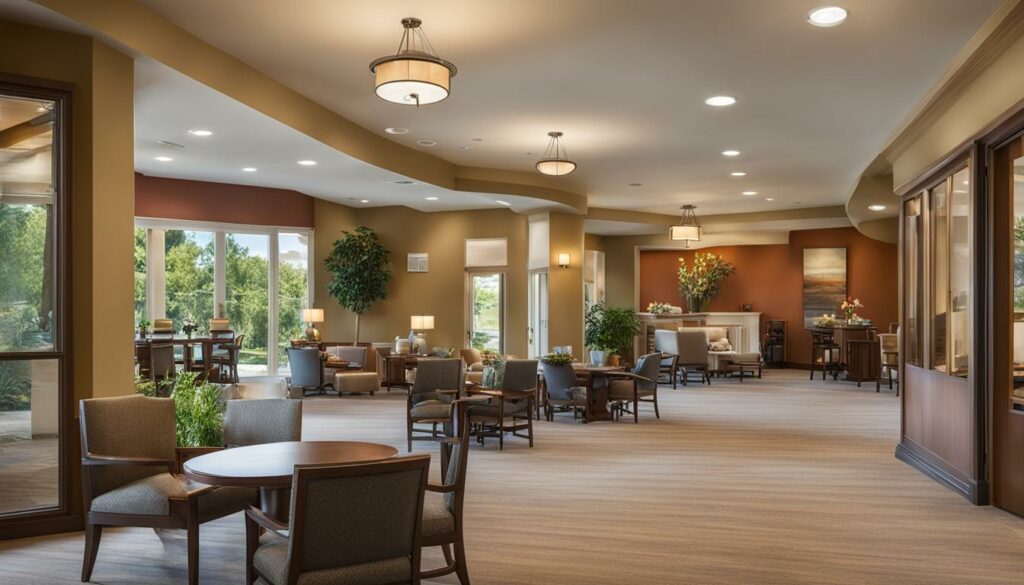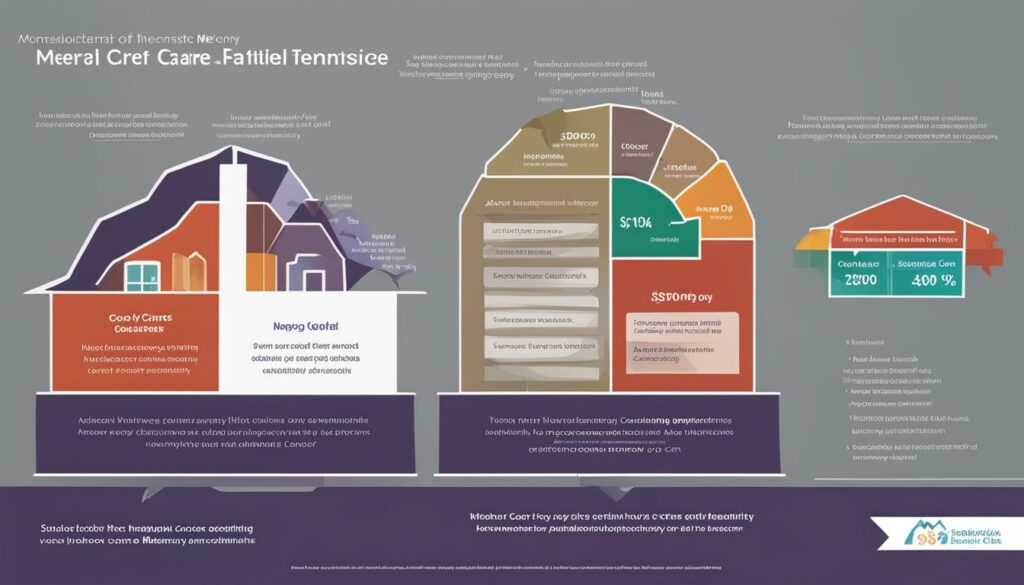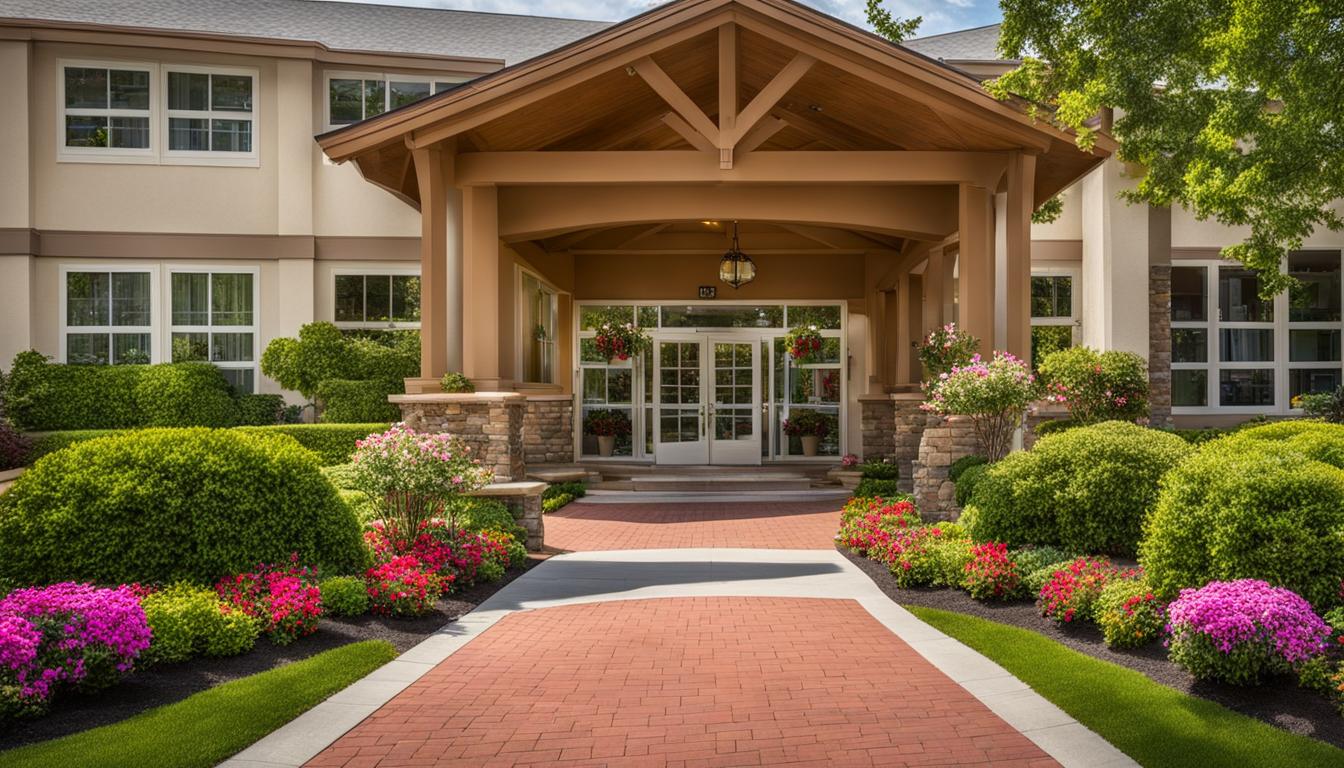Top-Notch Senior Residential Care Services in Your Area
Introduction
When it comes to researching senior residential care options for your parents from Los Angeles, it’s crucial to consider both Mexico and the United States. Exploring nearby options is essential to ensure easy accessibility and proximity, allowing you to be conveniently present for your parents’ needs. While the United States is renowned for its exceptional healthcare facilities and robust senior care services, Mexico, too, has emerged as a popular destination for retirees and elderly individuals seeking a comfortable and affordable retirement lifestyle.
Thank you for reading this post, don't forget to subscribe!
By delving into both these choices, you can gather a comprehensive understanding of the available options and make an informed decision that aligns perfectly with your parents’ requirements and preferences. Let us now delve into the details, comparing and contrasting the senior residential care offerings in Mexico and the United States, ensuring the best possible care for your beloved parents.
Senior residential care services provide quality care for elderly individuals, ensuring their safety, comfort, and well-being. These services encompass various options such as assisted living for seniors, elder care facilities, retirement homes, and senior living communities. Long-term care for seniors is also available, including senior care services and senior assisted living. Nursing homes for seniors and elder care homes are additional options that provide specialized care for elderly individuals. When searching for senior residential care services, it is important to consider the specific needs and preferences of your loved one to find the best fit.
Key Takeaways:
- Senior residential care services offer a range of options including assisted living, elder care facilities, retirement homes, and senior living communities.
- Long-term care for seniors, such as senior care services and senior assisted living, is available for those who require ongoing support.
- Nursing homes and elder care homes provide specialized care for elderly individuals with specific needs.
- When choosing senior residential care, consider the specific needs and preferences of your loved one to find the best fit.
- Research and visit potential facilities to ensure they meet the standards of quality care, safety, comfort, and well-being for your loved one.
Understanding Memory Care Facilities
Memory care facilities offer specialized care for individuals with memory problems, such as Alzheimer’s disease or dementia. These facilities provide comprehensive services and 24/7 monitoring to ensure the safety and well-being of residents with severe memory issues. Memory care can be a separate unit within a larger senior care facility, such as assisted living or skilled nursing.
In memory care facilities, residents receive personalized care that addresses their unique needs. The staff is trained to understand the challenges faced by individuals with memory problems and to provide the necessary support. Services may include medication management, personal care assistance, health assessments, transportation, healthy dining, and social activities.
One key aspect of memory care facilities is the focus on improving residents’ skills and enriching their lives through meaningful activities. These facilities encourage residents to set goals and work towards achieving them. By engaging in activities that stimulate their minds and bodies, residents can maintain their cognitive abilities and overall well-being.
“Memory care facilities provide specialized care and 24/7 monitoring to ensure the safety and well-being of residents with severe memory issues.”
The Importance of Memory Care Programs
When choosing a memory care facility, it is important to consider the level of care provided and the specific needs of your loved one. Memory care programs offer a structured environment where individuals with memory problems can receive the specialized care they require. These programs aim to maintain residents’ independence and dignity while ensuring their safety and comfort.
Memory care facilities often have dedicated staff who are trained in caring for individuals with memory problems. They have a deep understanding of the unique challenges faced by residents and are equipped to provide the appropriate support and assistance. The staff-to-resident ratio is typically higher in memory care facilities, allowing for more personalized care and attention.
In conclusion, memory care facilities play a crucial role in supporting individuals with memory problems. These specialized facilities provide comprehensive services, 24/7 monitoring, and personalized care to ensure the safety, comfort, and well-being of residents. By understanding the importance of memory care programs and considering the specific needs of your loved one, you can make an informed decision when choosing a memory care facility.

| Memory Care Facilities | Alzheimer’s Care Facilities | Dementia Care Facilities |
|---|---|---|
| Specialized care for individuals with memory problems | Specific programs and services for individuals with Alzheimer’s disease | Focused care and support for individuals with various types of dementia |
| 24/7 monitoring to ensure safety | Specialized staff trained in Alzheimer’s care | Personalized care plans tailored to the needs of each resident |
| Comprehensive services, including medication management and personal care assistance | Specially designed environment for individuals with Alzheimer’s disease | Therapeutic activities to stimulate cognitive abilities and promote well-being |
Factors to Consider When Choosing Memory Care

When selecting a memory care program for your loved one, it is important to consider several factors to ensure they receive the highest quality of care. These factors can greatly impact their well-being and overall experience in a memory care facility.
Comprehensive Services
The first factor to consider is the range of comprehensive services offered by the memory care facility. Look for facilities that provide medication management, personal care assistance, and regular health assessments. These services are essential in maintaining the health and comfort of your loved one.
Floor Plans and Social Roles
Another important consideration is the availability of different floor plans that suit your loved one’s needs and preferences. Additionally, inquire about the facility’s approach to social roles and inclusion. A facility that fosters a sense of community and encourages social interaction can greatly enhance your loved one’s overall well-being.
Skills Improvement and Goal Setting
Look for memory care facilities that place emphasis on skills improvement and goal setting. These facilities should provide programs and activities that promote cognitive abilities, encourage residents to maintain their remaining skills, and offer opportunities for personal growth and enrichment. This can significantly contribute to your loved one’s quality of life in a memory care setting.
Activities of Daily Living (ADLs)
Ensure that the memory care facility provides adequate support and assistance with activities of daily living (ADLs) such as bathing, dressing, and toileting. The facility should have trained staff available to assist residents when needed, ensuring their comfort and dignity.
Continuing Care Retirement Community (CCRC)
If your loved one prefers to stay in a single location and potentially transition to higher levels of care as their needs change, consider a continuing care retirement community (CCRC). These communities offer a range of senior living options, including memory care, and can provide a seamless transition as your loved one’s care requirements evolve.
Understanding Pricing and Financial Assistance
When it comes to memory care costs, it is important to consider the financial aspect of choosing a facility. Understanding the various options for financial assistance can help alleviate the burden of senior care expenses. Below, you will find information about long-term care insurance, Medicare, Texas Medicaid, continuing care retirement communities, and other financial assistance programs.
Long-Term Care Insurance
Long-term care insurance can be a valuable asset when covering the costs of memory care. This type of insurance is specifically designed to help individuals pay for senior living expenses, including memory care services. It is advisable to invest in long-term care insurance before the need for memory care arises, as pre-existing conditions may impact eligibility. Consult with an insurance advisor to explore the best options for your loved one’s future.
Medicare Coverage
While Medicare covers certain healthcare expenses for seniors, it does not typically cover the cost of memory care services. Medicare may assist in covering short-term costs associated with skilled nursing or assisted living facilities, but not the specialized care provided in memory care facilities. It is important to carefully review your loved one’s Medicare coverage to understand the extent of financial assistance available.
Texas Medicaid and Financial Assistance Programs
In Texas, Medicaid provides financial aid for assisted living facilities through specific waivers. This program aims to assist individuals with limited financial resources in accessing necessary care and services. It is advisable to consult with a Medicaid specialist or contact the local authorities to determine eligibility and learn more about the application process.
| Program | Description | Eligibility Criteria |
|---|---|---|
| Texas Medicaid | Provides financial aid for assisted living facilities and services | Varies based on income, assets, and need for care |
| Other Financial Assistance Programs | Various state and local programs that offer financial aid for senior care | Varies; check with local authorities for eligibility requirements |
Additionally, continuing care retirement communities (CCRCs) offer seniors the opportunity to stay in one location and provide different levels of care as needed. These communities often have financial arrangements that require an entrance fee and involve ongoing monthly costs. It is important to thoroughly research CCRCs and understand their financial structure before considering this option.
By exploring these financial assistance options, you can better navigate the expenses associated with memory care and ensure your loved one receives the quality care they deserve.

Benefits of Senior Residential Care in Houston
When it comes to senior residential care, Houston offers a multitude of benefits that make it an ideal location. The city is home to a diverse range of museums, allowing seniors to immerse themselves in art, history, and culture. From the Museum of Fine Arts to the Space Center Houston, there is something for everyone’s interests. These cultural institutions provide a stimulating environment and opportunities for seniors to engage in enriching activities.
In addition to its museums, Houston hosts numerous cultural festivals throughout the year. From the Houston Livestock Show and Rodeo to the colorful Houston Pride Parade, there is always a vibrant celebration happening in the city. These festivals offer seniors a chance to experience the diversity and vibrancy of Houston’s culture while socializing with others.
Furthermore, Houston’s climate and outdoor amenities make it an excellent destination for seniors who enjoy outdoor activities. The city boasts an extensive park system, including Memorial Park and Hermann Park, where seniors can take leisurely walks, have picnics, or enjoy the beauty of nature. The warm climate also allows for year-round gardening and outdoor recreational activities, promoting an active and healthy lifestyle.
“Houston’s vibrant atmosphere and abundance of amenities make it an appealing choice for retirement.”
Access to quality healthcare is another advantage of senior care facilities in Houston. The city is renowned for its world-class medical institutions, including the Texas Medical Center, which is the largest medical complex in the world. Seniors can have peace of mind knowing that top-notch healthcare services are readily available, providing comprehensive care and specialized treatments if needed.
Lastly, Houston offers lower costs of senior care facilities compared to the national average. This affordability factor allows seniors to maximize their savings and financial resources while still receiving high-quality care. The lower costs of living in Houston, combined with the abundance of amenities and cultural experiences, make it an attractive and practical choice for seniors seeking residential care.

Table: Comparison of Senior Care Facility Costs in Houston and National Average
| Type of Care Facility | Average Monthly Cost in Houston | National Average Monthly Cost |
|---|---|---|
| Assisted Living | $3,500 | $4,000 |
| Memory Care | $4,500 | $5,000 |
| Nursing Home | $5,500 | $6,500 |
Note: The costs mentioned above are approximate averages and may vary depending on the specific facility and level of care provided.
Conclusion
Senior residential care services provide quality care for elderly individuals, prioritizing their safety, comfort, and overall well-being. Whether it’s through memory care facilities or continuing care retirement communities, there are various options available to cater to the specific needs of seniors. By considering comprehensive services, pricing, and location benefits, you can make an informed decision and ensure your loved ones receive the top-notch care they deserve.
When it comes to senior residential care, quality care is paramount. These services offer a range of amenities and support systems to promote the safety and comfort of elderly individuals. From specialized memory care programs to assisted living facilities, every aspect is designed to enhance their well-being and provide peace of mind for families.
Ensuring the safety and comfort of your loved ones is essential. Senior residential care services are dedicated to providing a secure and nurturing environment where seniors can thrive. With trained staff and comprehensive care plans, these facilities prioritize the physical, emotional, and cognitive needs of each resident, enabling them to enjoy a fulfilling and enriching lifestyle.
By choosing senior residential care, you are making a positive investment in the well-being of your loved ones. These services offer a range of amenities, personalized care plans, and social activities that contribute to a higher quality of life. From long-term care to memory care, senior residential care services strive to create a supportive and engaging community for seniors to age gracefully and enjoy their golden years to the fullest.
FAQ
What are the different options for senior residential care services?
The different options for senior residential care services include assisted living for seniors, elder care facilities, retirement homes, and senior living communities. There are also long-term care options such as senior care services and senior assisted living. Nursing homes for seniors and elder care homes provide specialized care for elderly individuals.
What are memory care facilities?
Memory care facilities cater to individuals with memory problems, such as Alzheimer’s disease or dementia. These facilities provide specialized care and 24/7 monitoring to ensure the safety and well-being of residents with severe memory issues.
What services are offered in memory care facilities?
Memory care facilities offer comprehensive services including medication management, personal care assistance, health assessments, transportation, healthy dining, and social activities. They focus on improving residents’ skills, setting goals, and enriching their lives through meaningful activities.
What factors should I consider when choosing a memory care facility?
When choosing a memory care facility, it is important to consider the level of care provided and the specific needs of your loved one. Other factors to consider include the availability of different floor plans, the facility’s focus on social roles and inclusion, improvement of skills, setting goals, and encouraging residents to maintain remaining skills.
How can I pay for memory care services?
Memory care facility pricing can vary. Long-term care insurance is a common way to pay for senior living expenses. Medicare covers short-term costs associated with skilled nursing and assisted living facilities, but not memory care services. Texas Medicaid provides financial aid for assisted living facilities and services through specific waivers. Continuing care retirement communities (CCRCs) offer seniors the opportunity to stay in one location and provide different levels of care as needed.
What are the benefits of senior residential care in Houston?
Houston offers numerous benefits for seniors seeking residential care, including a wide range of museums, diverse cultural festivals, and outdoor activities. The city is also a hub for healthcare and research institutions, providing access to top-notch medical services. Additionally, senior care facilities in Houston often have lower costs compared to the national average, making it an affordable option for many seniors.

